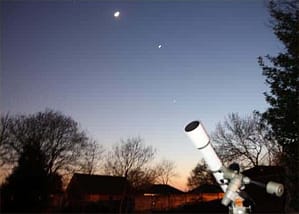 Book Review
Book Review
Title: Mars Beckons India. The story of India’s Mission to Mars
Publisher: Vigyan Pasar
Author: Srinivas Laxman
ISBN: 9788174802255
Hardback: 71 pages
Disclosure: The author of this book, Srinivas Laxman reviewed my book “Yuri Gagarin in Manchester and London” on his blog in 2011.
The dramatic announcement by the Indian Space Research Organisation (ISRO) in August 2012 to launch a mission to Mars surprised everyone. It went further. In order to catch the next Mars launch window ISRO committed to a launch in November 2013. Miss that and they will have to wait for at least two years for the next one. This is an extra-ordinarily bold undertaking for a space agency with the experience of only a single mission beyond Earth orbit under its belt.
In this book the author, a Times of India journalist, Srinivas Laxman interviews some of the key ISRO personnel to get mission details first hand. There is not a great deal of detail in the book. Given the record breaking timescale, just over a year from announcement to launch, much of the detail is work in progress. The subtitle “The story of India’s Mission to Mars” is a little ambitious given that the mission has yet to begin. In the preface the author describes the book as a “public outreach exercise” which is much more appropriate objective. The book is well produced containing a generous number colour images. Some are disappointingly small and not all sit well within the narrative where they appear.
Although far from comprehensive, this is probably the most detailed information source authorised by ISRO in the public domain at the present. It was published early 2013. Mission details are still emerging. The 500kg spacecraft called Mangalyaan in the media but not formally by ISRO nor in this book, was made by Hindustan Aeronautics Limited, will be launched aboard a PSLV-XL launcher (the same one used for the Chandrayaan-1 mission to the Moon in 2008) in November 2013. Following six ever increasing elliptical orbits of Earth, Mangalyaan will leave Earth on 26th November and enter Martian orbit of 500km by 80,000km on 21st September 2014.
This mission, unlike Chandrayaan-1 does not have an element of international collaboration. All five instruments (Methane Sensor, Thermal Infra-red Imaging Spectrometer, Mars Colour Camera, Lyman Alpha Photometer and the Mars Exospheric Neutral Composition Analyser) are of Indian origin.
Also included in the book is some background to Mars missions in the past and an introduction to some of the key ISRO personnel too. This is an ideal book for anyone new to the subject, especially students who are looking for a primer on the India’s first Mars mission. Currently it is only available in hardback. Particularly for the student community, the publisher should consider releasing an e-book version.
The book, published only in India is available online from Bookadda at RS175.
 Launched 15 years ago today, the
Launched 15 years ago today, the
